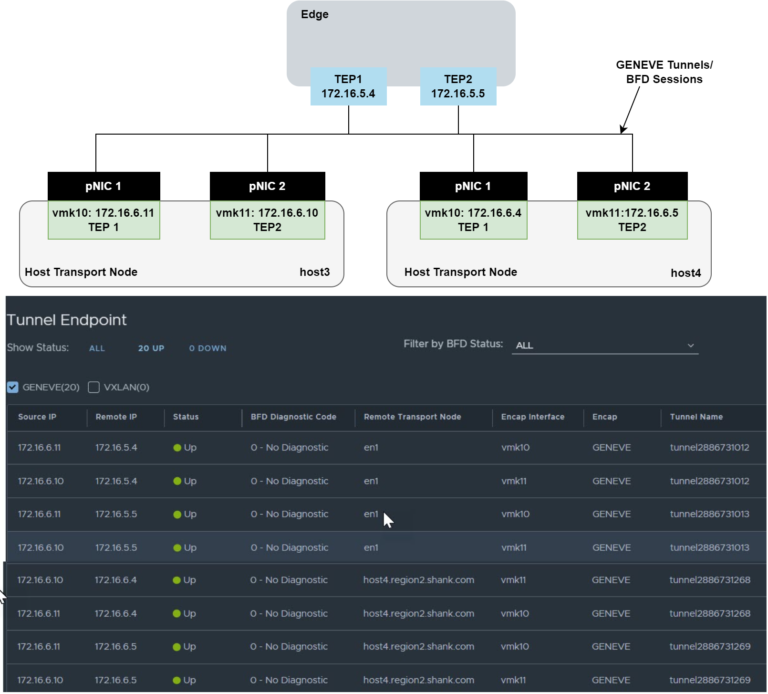Are you looking to launch a website but not sure where to start with WordPress web hosting? This article will guide you through the basics of web hosting, the different types available, and how to choose the right one for your needs.
From reliability and uptime guarantees to customer support and security features, we’ll cover all the essential factors to consider.
Stay tuned for tips on finding a reliable web host and common mistakes to avoid. Let’s get started on finding the perfect web host for your website!
Key Takeaways:
- Choose the right web host based on your website’s needs and your budget.
- Look for features like reliability, bandwidth, customer support, and security in a web host.
- Avoid common mistakes like choosing the cheapest option and not researching the web host’s reputation.
What is a Web Host?
A web host is a service that provides the technologies and server space needed for a website to be accessible on the internet.
Web hosting involves renting server space and allocating resources such as bandwidth, storage, and CPU for websites to function smoothly. Servers play a crucial role in hosting websites by storing website files, databases, and managing incoming and outgoing data requests. Reliable web hosting services ensure high uptime, fast loading speeds, secure data management, and reliable customer support.
What are the Different Types of Web Hosting?
The Different Types of Web Hosting include shared hosting, VPS hosting, dedicated hosting, and cloud hosting, each offering distinct advantages and functionalities.
Shared hosting is a cost-effective option where multiple websites share resources on a single server, making it ideal for small businesses or personal sites with moderate traffic.
VPS hosting provides a dedicated virtual server with more flexibility and control, suitable for growing websites needing more power.
Dedicated hosting offers an entire physical server dedicated to one user, ensuring high performance and security, perfect for large e-commerce platforms.
Cloud hosting utilizes a network of virtual servers for scalability and reliability, popular among high-traffic sites needing flexibility.
Each web hosting type caters to different needs and budgets, so understanding their distinctions is crucial in selecting the right solution for your website.
How to Choose the Right Web Host?
Choosing the right web host involves evaluating factors such as performance, security features like SSL certificates, domain support, and scalability options, especially for e-commerce websites.
When considering performance, it’s essential to look into the server’s processing power, memory, and disk space to ensure your website runs smoothly without any lags.
Security is another crucial aspect, including features like firewall protection, DDoS mitigation, and regular backups to safeguard your data.
Domain services enable you to register, transfer, or manage domains seamlessly. Look for a host that offers domain registration services with competitive pricing and easy management tools.
For e-commerce compatibility, check if the host supports necessary features like secure payment gateways, e-commerce platforms, and SSL integration for encrypted transactions.
What Factors to Consider When Choosing a Web Host?
Factors to consider when choosing a web host include the quality of customer support, availability of site backups, robust security measures like DDoS protection, and scalability for future growth.
Customer support quality plays a crucial role in ensuring a seamless hosting experience. Responsive and knowledgeable support teams can address technical issues promptly, enhancing the overall reliability of the hosting service.
Having reliable site backups is essential to safeguarding your data and quickly recovering from any unexpected incidents. Robust security measures, such as DDoS protection, are vital for preventing cyber attacks and ensuring the continuous availability of your website.
When assessing scalability options, consider how easily the hosting provider can accommodate your increasing needs as your website grows in traffic and complexity.
What Features to Look for in a Web Host?
When choosing a web host, essential features to look for include robust antivirus and malware protections, reliable site backup options, and security measures to safeguard against potential data breaches.
Antivirus software is crucial in detecting and preventing malicious attacks that can compromise your website’s integrity. Similarly, effective malware protection is vital to ensure that your site remains safe from harmful software that can disrupt its functionality.
Having reliable site backup options is essential for minimizing downtime in case of unexpected events. Regular backups can help restore your website quickly in case of data loss or a cyber-attack.
Security measures such as SSL certificates, firewalls, and intrusion detection systems are paramount to protect sensitive data and ensure secure online transactions on your website. By choosing a web host that prioritizes these security protocols, you can enhance the overall protection of your online presence.
Reliability and Uptime Guarantee
Reliability and uptime guarantee are crucial considerations when assessing a web host’s performance, ensuring that your website remains accessible to users without disruptions.
Reliability refers to the consistency of a web hosting service in delivering its promised performance day in and day out. An uptime guarantee assures website owners of the percentage of time their site will be up and running smoothly.
Having reliable hosting with high uptime ensures that visitors can access your website promptly, leading to a positive user experience and solid reputation. Downtime, on the other hand, can result in lost traffic, revenue, and credibility, making these guarantees vital for any online presence.
Bandwidth and Storage
Bandwidth and storage capacity are essential features to consider in a web host, determining the data transfer limits and disk space available for your website’s content.
Bandwidth refers to the amount of data that can be transferred between your website and its visitors within a specific period, often measured in bits per second. It plays a crucial role in determining how quickly your website loads and how well it performs during peak traffic periods.
On the other hand, storage capacity is the amount of disk space allocated to store your website’s files, including images, videos, and databases.
Customer Support
Quality customer support is essential in a web host, providing technical assistance, scalability options, and reliable guidance to address any hosting-related issues.
A robust customer support system ensures that users receive prompt and accurate help when encountering challenges with their web hosting services. It plays a crucial role in maintaining customer satisfaction and trust, enabling them to navigate complex technical issues with ease. Additionally, scalability features in customer support allow businesses to adapt and grow without disruptions or limitations, ensuring their hosting needs are met efficiently. Responsive support channels, such as live chat, phone support, and ticketing systems, offer users multiple avenues to seek assistance, enhancing the overall user experience.”
Security and Backup Options
Security and backup options are critical features in a web host, encompassing SSL certificates, antivirus protections, malware defenses, and reliable backup systems to safeguard your website’s data.
SSL certificates play a vital role in securing the data transmission between your website and its visitors, ensuring encryption and authentication.
Antivirus software helps to detect and remove any malicious software that could harm your website or compromise sensitive information.
Malware protection keeps your website safe from cyber threats and unauthorized access, preventing potential downtime and damage to your reputation.
Implementing a robust backup system is essential for recovering data in case of emergencies, ensuring business continuity and peace of mind.
Tips for Finding a Reliable Web Host
To find a reliable web host, read reviews, evaluate technical support availability, consider scalability options, and compare pricing and payment plans to make an informed decision.
When browsing through reviews, focus on comments about uptime, security features, and customer service to gauge the overall satisfaction level.
- Check if the web host offers 24/7 technical support through various channels like live chat, phone, or tickets,
- Scalability is crucial for ensuring your website can handle growth without disruptions, so look for hosts that offer flexible upgrade options without causing downtime.
Understanding the pricing structures is vital, as some hosts may have hidden fees or introductory discounts that increase substantially upon renewal. There are various payment options available, ranging from monthly to yearly subscriptions, and it’s advisable to opt for a reputable host that offers secure transaction methods to safeguard your financial details.
Read Reviews and Compare Options
Reading reviews and comparing different web hosting options can offer valuable insights into the quality of services, user experiences, and overall credibility of hosting providers.
When considering web hosting services, it’s crucial to assess user feedback regarding uptime, customer support, security features, and scalability. Utilizing a comprehensive comparison approach can help in identifying the best hosting service for your specific needs.
Look for patterns in reviews that consistently highlight positive or negative aspects of a web host. By examining multiple reviews across diverse platforms, you can gain a more balanced perspective on the strengths and weaknesses of each provider. This process aids in separating reputable hosting services from those that may have inconsistent performance or customer satisfaction.
Check for Technical Support Availability
Ensuring technical support availability is crucial when choosing a web host, as responsive assistance can help resolve issues promptly and maintain the smooth operation of your website.
Technical support plays a pivotal role in the seamless functioning of your online presence, safeguarding you from potential downtime and ensuring optimal performance. With round-the-clock availability, you can rest assured that any technical glitches or queries will be addressed promptly, contributing to a positive user experience and enhancing the credibility of your website. Expert guidance from knowledgeable support staff can also assist in optimizing your web hosting setup, tailoring solutions to suit your specific requirements and staying ahead of any potential hurdles that may arise.
Look for Scalability Options
Scalability options in web hosting allow for flexible growth, accommodating increasing traffic, storage needs, and additional features based on your website’s evolving requirements.
When considering web hosting solutions, it is crucial to assess the scalability options provided by the service provider. A scalable infrastructure ensures that as your website expands, the hosting can seamlessly handle the growth without interruptions or performance issues. Upgrade paths play a vital role in this process, allowing you to easily transition to higher-tier plans or add-on services as needed.
Resource expansions, such as increased bandwidth, storage capacity, or processing power, are essential components of a scalable web hosting solution. These resources can be adjusted according to your website’s demands, ensuring optimal performance at all times.
Customizable plans tailored to your specific needs further enhance the scalability of your hosting. By selecting services that align with your website’s growth trajectory, you can effectively manage costs while maintaining the necessary resources for a seamless user experience.
Consider the Pricing and Payment Plans
When choosing a web host, consider pricing structures and payment plans to ensure affordability, transparency in costs, and alignment with your budget constraints and hosting needs.
Web hosting pricing plays a crucial role in determining the overall cost-effectiveness of your online presence. Evaluating costs involves analyzing the initial setup fees, as well as renewal prices to avoid unforeseen expenses down the line. Comparing different hosting plans enables you to identify the features that are essential for your website’s functionality while staying within your budgetary limits. Understanding the payment options available, such as monthly, yearly, or long-term commitments, allows you to choose a plan that suits your financial preferences. By carefully examining these aspects, you can make an informed decision that maximizes the value you receive from your web hosting provider.
Common Web Hosting Mistakes to Avoid
Common web hosting mistakes include opting for the cheapest option, overlooking compatibility with website needs, neglecting research on a host’s reputation, and failing to understand the Terms of Service.
One prevalent error in the realm of web hosting decisions is the sole focus on cost-based options. While it may be tempting to choose the most economical hosting plan, this can lead to severe limitations in terms of performance, security, and customer support.
Users often overlook the importance of considering compatibility with the specific requirements of their website, resulting in potential functionality issues and downtime. It’s crucial to conduct thorough research on a hosting provider’s reputation before committing, as a poor reputation can indicate subpar service quality and support.
The failure to read and comprehend the Terms of Service can lead to unexpected restrictions or disputes down the line, emphasizing the significance of reviewing and understanding these legal agreements before signing up for a hosting plan.
Choosing the Cheapest Option
Opting for the cheapest web hosting option can lead to compromised performance, inadequate support, and potential limitations that may impact your website’s functionality and user experience.
One of the main drawbacks of choosing a budget-friendly web hosting service is the reduced quality of performance. Cheaper hosting providers often oversell server resources, leading to slower loading times and frequent downtimes, affecting the overall speed and reliability of your website. The level of support provided by these low-cost services is typically minimal, with longer response times and less personalized assistance, making it challenging to address technical issues efficiently.
These budget hosting solutions often come with restrictive features and limited scalability options. Advanced functionalities may not be available, such as dedicated IP addresses, SSL certificates, or robust security measures, compromising the security and flexibility of your online presence. It’s essential to carefully consider these trade-offs when making decisions about web hosting to avoid potential setbacks in the long run.
Not Checking for Compatibility with Website Needs
Neglecting to check for compatibility with your website’s requirements can result in performance bottlenecks, functionality limitations, and potential disruptions that hinder user engagement and site operations.
When selecting a hosting provider, it is crucial to understand the specific needs of your website and ensure that the chosen plan aligns with those requirements. Failure to do so can lead to issues such as slow loading times, unresponsive pages, and even downtimes, which can significantly impact user experience and overall performance.
By overlooking compatibility, you risk facing a myriad of technical challenges that may not only frustrate your visitors but also harm your search engine rankings and online reputation. It’s essential to conduct a thorough evaluation of your hosting options to find the best fit for your website’s unique requirements and long-term goals.
Not Researching the Web Host’s Reputation
Failing to research a web host’s reputation can lead to unexpected service quality, reliability issues, and potential data vulnerabilities that compromise your website’s security and performance.
When selecting a web hosting provider, it’s crucial to delve into their reputation in the industry. A host’s reputation reflects how well they deliver on promises, maintain server uptime, and handle customer support. Ignoring this check could result in poor service levels, frequent downtime, and inadequate responsiveness to troubleshooting. An overlooked reputation may hint at lax security measures, leaving your website vulnerable to cyber threats and data breaches. The reliability of your host, built on a solid reputation, directly impacts your website’s online presence and success.
Not Understanding the Terms and Conditions
Failing to understand the Terms of Service in a web hosting agreement can result in compliance issues, unexpected charges, and disputes that may affect your website’s operations and hosting relationship.
Web hosting services come with a set of rules and regulations outlined in the Terms of Service. Ignoring or misinterpreting these terms can lead to severe consequences for your online presence. It is crucial to be aware of the details within the agreement as it governs the relationship between you and the hosting provider.
Failure to grasp the Terms of Service may unknowingly expose you to hidden fees, additional charges, or limitations on your hosting plan. Such misunderstandings can jeopardize the smooth functioning of your website and can strain the collaborative partnership with your hosting provider.
Conclusion: Finding the Right Web Host for Your Needs
Selecting the right web host involves assessing your specific needs, comparing features, and considering factors like reliability, security options, and the availability of managed hosting plans and discount coupons.
One crucial aspect to keep in mind when choosing a web host is the need for tailored solutions. Every website has unique requirements, so finding a host that can cater to those specific needs is essential. It’s also beneficial to conduct a thorough feature comparison among different providers to ensure you’re getting the functionalities that align with your objectives.
Opting for managed hosting plans can significantly ease the burden of technical maintenance, allowing you to focus more on your core business activities. Many hosting companies also offer discount offers or coupons, which can help you save costs without compromising on quality.
Frequently Asked Questions
What is web hosting and why is it important?
Web hosting is the service that allows individuals and organizations to make their website accessible on the internet. It is important because without web hosting, your website would not be visible to the public.
What are some important factors to consider when choosing a web hosting service?
Some important factors to consider when choosing a web hosting service include reliability, customer support, server performance, pricing, and additional features such as website builders and security.
What are some common types of web hosting?
Some common types of web hosting include shared hosting, VPS hosting, dedicated hosting, and cloud hosting. Each type has its own advantages and is suitable for different types of websites.
How can I ensure the security of my website on a web hosting platform?
To ensure the security of your website on a web hosting platform, make sure to choose a provider with strong security measures, regularly update your website’s software and plugins, use secure passwords, and regularly back up your website’s data.
What are some tips for improving website loading speed on a web hosting platform?
To improve website loading speed on a web hosting platform, consider optimizing your website’s images, minifying CSS and JavaScript files, using a content delivery network, and choosing a hosting plan with sufficient resources for your website’s needs.
Can I switch web hosting providers if I am not satisfied with my current one?
Yes, you can switch web hosting providers if you are not satisfied with your current one. However, it is important to carefully research and plan before making the switch to avoid any downtime or data loss.





